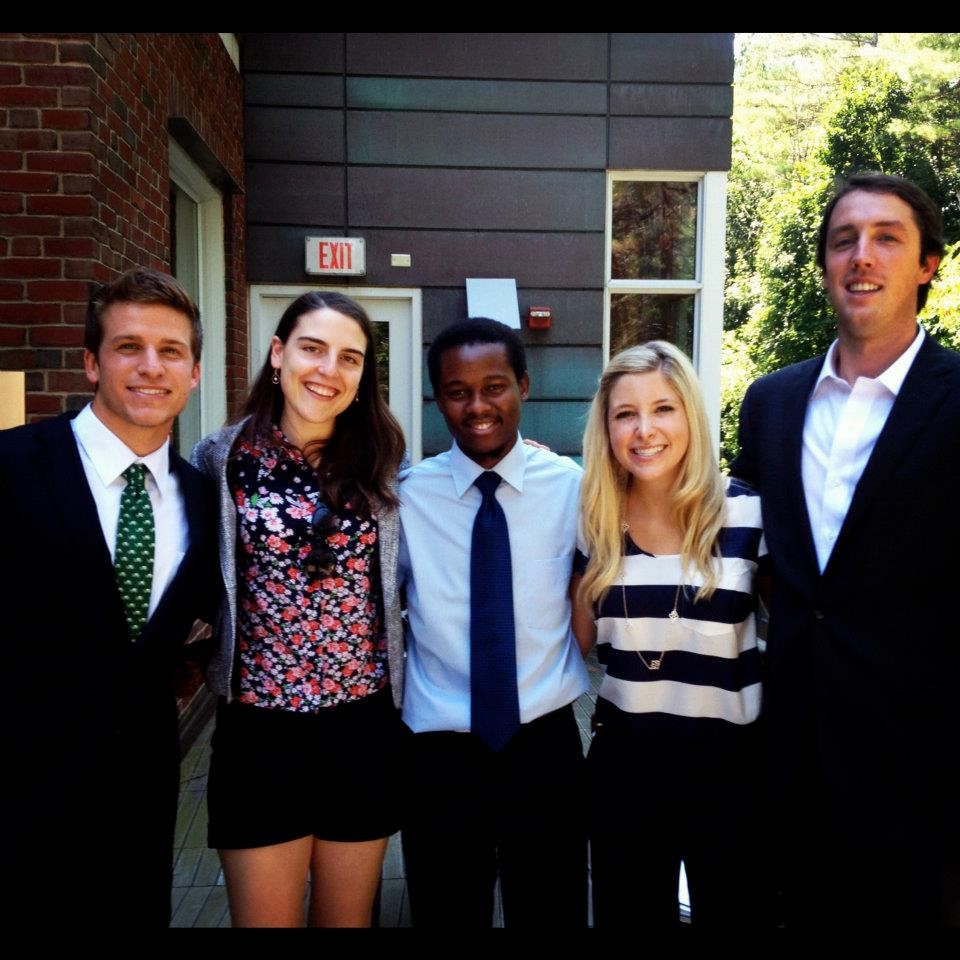
Tuck Bridge Stories: A Conversation with Thabo Matse
Thabo Matse graduated from Dartmouth in 2014 having completed a double major in Engineering Sciences (with a skew towards mechanical engineering and product design) and Economics (focusing on international and developmental economics). Thabo attended the first session of Bridge in the summer of 2012. We caught up with him recently to talk about his Bridge experience. This is his story:
What do you do?
I am an Associate Consultant at Dalberg Global Development Advisers, a strategy consulting firm that focuses on global development. At Dalberg, I conduct research and analyses at the heart of key international development challenges, supporting governments, foundations, INGOs, multilaterals, corporations, and multi-stakeholder alliances working to improve living standards globally, especially in developing economies. My most memorable engagements have included creating a market monitoring report for a global tech company, landscaping key developments in ICT policy, investments, infrastructure, and technology in priority African markets; developing a strategy to coordinate government efforts in addressing infectious disease threats at the height of the Ebola crisis; developing a strategy for addressing post-harvest losses in fresh fruit and vegetable value chains in Nigeria; and developing a framework for assessing the effectiveness of early-stage incubation and acceleration in East Africa, Southern Africa, and South East Asia.
Why did you join Bridge?
Taking classes at the Thayer School of Engineering, I was always fascinated by the mysterious neighbor next door. Tuck offered a model of teaching and learning different from that of the rest of Dartmouth and I wanted to try it out.
More importantly though, I learned about Bridge during my sophomore year, at a time when I was beginning to think more deliberately about the kind of impact I wanted to create as an individual. I always knew that I wanted to work towards empowering underserved people and communities, but was dissatisfied with the modas operandi of traditional aid. At the same time, I had won a grant to implement a grassroots project in my home country of Swaziland and was beginning to think about what systemic change looks like, beyond the grassroots—what levers have the greatest impact. It was undeniable that business had something to do with it. Bridge was an intense month during which I would not only gain the managerial and technical skill set required to be an effective director of a grassroots development project, but also begin to investigate, for myself, the potential role of business in development. After graduation, I returned to Tuck as a Paganucci Fellow to further learn about social entrepreneurship – business creating solutions to pressing social problems, especially for people often excluded from markets. In many ways, Bridge was the first step in clarifying my career story.
What surprised you about Bridge?
There were no (reported) grades, but there were still many long nights; we all worked hard because we wanted to learn and get the best out of Tuck. We were here because we wanted to be here. We wanted to win MarkStrat, put together a killer valuation presentation, ace Corp Fin and Accounting, network hard, and make some great friends. Some things were achieved and others were not, but it was still a great month, and I was surprised by how much everyone put in to make it so.
What was your favorite part about Bridge?
I loved the team orientation of Bridge and how complementary out backgrounds were, especially our academic backgrounds. I was in an incredible team representing different majors and colleges. Everyone had an opportunity to lead on something; crunching the numbers to decide which product line to kill in MarkStrat, being the designated DCF guru, storylining the final valuation PowerPoint presentation – all these work streams required different skill sets, and we were all empowered to bring our diversity to bear to see the work through.
Photo credit: Kaitlin Lang
